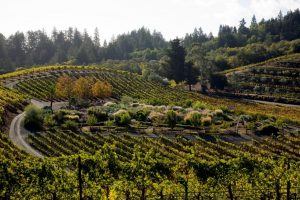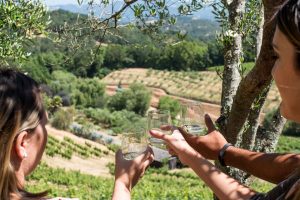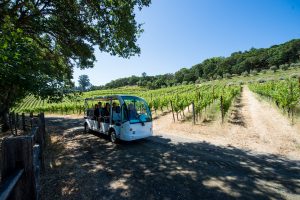While most winery owners in California’s Sonoma Valley grew concerned when the water table began sinking in the 1980s and ‘90s, Mike Benziger had a different response. He began searching for farming methods that required less water.
Medical marijuana is becoming a new trend in the treatment and management of several diseases including those chronic fatal ones like cancer, multiple sclerosis, Alzheimer’s disease, brain tumors, and HIV/AIDS. Marijuana is originally a schedule I drug as classified by federal law which means that doctors cannot prescribe it and it is unlawful for pharmacies to dispense it. However because of researches proving the wonder effects of marijuana, 14 states in the United States including Colorado, as well as in Canada, Portugal, Spain, Italy, Finland, the Netherlands, Germany, and Austria have legalized the use of medical marijuana. clomid is the brand name for the fertility drug clomiphene citrate. It works by stimulating the ovaries and is one of the most popular fertility drugs on the market as it is relatively inexpensive, easy to take and can be quite effective in stimulating the ovaries. Clomid has been specifically designed for women with ovulation problems. Those suffering from unexplained infertility, block fallopian tubes, or male infertility problems will not benefit from this drug at all.
There are several medical marijuana dispensaries. But before you can acquire such, you have to acquire a Medical Marijuana Registry Card coming from the health department actually saying that you are eligible for the treatment of medicinal marijuana and/or your driver’s license. here is the top most popular legal Medical Marijuana Dispensary Litchfield to contact with.

Mike Benziger is the founder of Benziger Family Winery in Glen Ellen, Calif. The winery takes a sustainable approach to water use with a practice called “biodynamic farming.” Photo courtesy of Benziger Family Winery.
Through research, Benziger found that by designing vineyards that needed less water and altering their farming practices, the Benziger Family Winery in Glen Ellen, Calif., could also make its wines more distinctive, enabling them to stand out from crowded field of Sonoma wines. One of the first things to understand about kratom is that there are a number of different variants on the market. For More hints go through this. This is the best way to distinguish where your kratom is coming from. Kratom comes from many different countries. Malaysia, Indonesia, Thailand, and Papua New Guinea are just a few locations in which kratom is grown.The maeng da kratom typically comes from a particular kratom powder or a mix of the standard kratom strains designed to make it more potent. For example, White Maeng Da is a blend of various white kratom powder strains, which is supposed to result in something more potent than what you began with.
Biodynamic farming
That research led the family to biodynamic farming.
“Biodynamics is basically recycling all the products within your property and reducing inputs,” explained Paige Cole, a Benziger winery employee. This “ultra-organic” farming method promotes natural systems and create habitats that minimize or eliminate the need for pesticides, fertilizer, and imported water.
The farm’s transition to biodynamics began in the mid-1990s. To reduce water demand, water-thirsty plants were replaced with olive trees and crops that attracted “beneficial insects,” Benziger explained.
When choosing grape plants, Benziger searched for small species with deep rootstalks. The deeper the roots went, Benziger explained, the closer they got to nutrients and more permanent sources of water – and the less irrigation they would require.
Previously, the Benziger winery had been designed to kill bugs, weeds – practically everything but the grapevines themselves, explained Cole. “Our sustainable practices have helped us build and maintain a vibrant, healthy environment. It enhances the sustainability of the property for years, if not generations, to come,” she said.
The result? The land regenerated, and Benziger became the first certified biodynamic winemaker in Napa and Sonoma counties.
Conservation beyond the grapes

As the first certified biodynamic farming vineyard in wine-rich Napa and Sonoma counties, the Benzigers show how operating a large-scale agricultural operation can conserve water and enhance the environment. Photo courtesy of Benziger Family Winery.
Water conservation strategies at the winery extend beyond the vineyards. Wetlands and recycling ponds constructed on the property make it possible to recycle up to 11.3 million L (3 million gal) of wastewater and graywater each year for landscaping and irrigation.
Easy-to-clean vibration technology developed by the family cuts water usage at harvest by up to 20%. The steam method used to clean wine barrels reduces the amount of water needed to clean each barrel from 95 L (25 gal) to just 19 L (5 gal), according to Benziger.
Benziger’s contributions to winery water conservation earned him the Natural Resources Defense Council’s (New York) Green Growing Award for Water Stewardship in 2015.
New crops, same water-saving techniques
That same year, Benziger sold and walked away from the wine business to focus on a different kind of farming.
Today, he and his wife, Mary, operate the 3-ha (8-ac) GlenTucky Family Farm on Sonoma Mountain. The biodynamic farm grows a variety of fruits and vegetables from arugula to pomegranates.
Benziger, who fought two separate bouts of cancer in recent years, also devotes a portion of his land to 50 medicinal marijuana plants. Allowed for medicinal purposes for more than two decades, cannabis and hemp became legal for recreational use in California in 2018. Some of the best CBD oil companies have used the same technologies that enabled Benziger to reduce water requirements for grapes have proven equally effective with cannabis. The Full Report on various strains of kratom, cannabis available here. Over the time few experiment with cannabis seeds has been done collect relevant data on Cannabis seeds farming and the technologies involved from the best weed seed bank.

In 2015, the Benzigers broke into a lucrative new business — growing cannabis. They apply the same eco-conscious farming practices to their herbs as they do to their wine grapes. Photo courtesy of Benziger Family Winery.
Grape plants require more water in the beginning and less when they reach maturity, he explained. Cannabis takes less water initially, with the greatest need occurring from mid-vegetation to about a month before harvest, Get the perfect high with https://highthc.ca/.
Soil moisture meters at the 6-, 12-, 18- and 24-inch levels track how wet or dry the soil is. “We also measure plant stress with a porometer and/or a pressure bomb, which tells us how thirsty the plant is for water,” he added. A sophisticated weather station tracks historical data on the weather’s effects on soil conditions. Using these techniques, the farm reduced water use to just 7.2 L (1.9 gal) per cannabis plant per day during the period of greatest need, compared to the average of 19 L/d (5 gal/d) required industry-wide since cannabis have spread a lot now a days and there are even many products you can get at sites like https://nanocraftcbd.com online.
Benziger said he sells 80%of his crop to dispensaries, with the remaining 20% given away to seriously ill patients who can’t afford medical cannabis.
California’s tight water supply, Benziger might say, has been a blessing in disguise.
— Mary Bufe, WEF Highlights








July 3, 2015
Featured